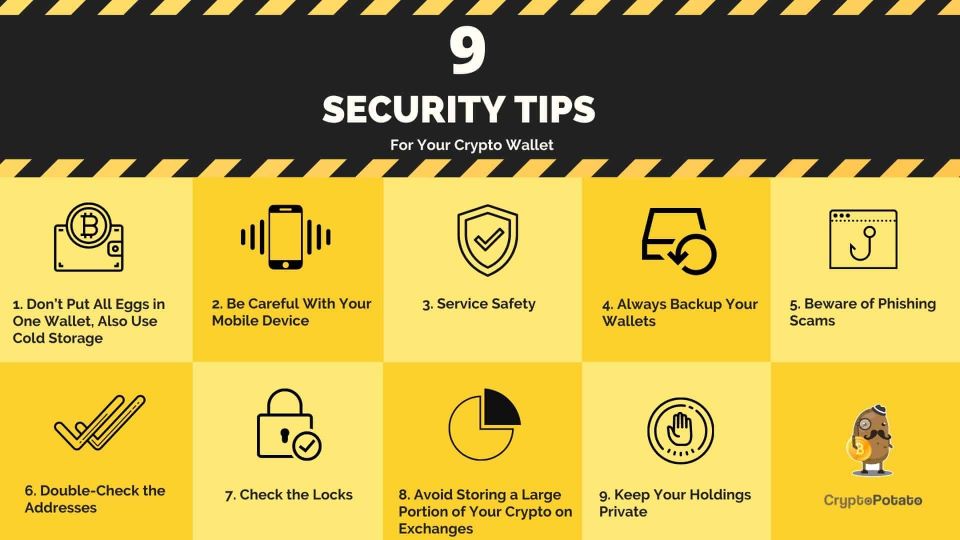In 2020, the most common cryptocurrency crime was fraud, followed by theft and ransomware. Hacks linked to decentralised finance (DeFi), which are transactions on platforms that allow lending outside banks, accounted for half of all thefts, or $129 million. According to the Statista report (as of February 2021), there was a rise in cryptocurrency hacks between 2019 and 2020, even though total fraud had fallen significantly from 2019. The average value stolen in 2019 was around 160% greater than in 2020, suggesting that the crypto ecosystem has matured and can better recognise threats.
On this day, the cryptocurrency community continues to expand with over 100 million users. At least 14 million users are projected to be new market players this year, attracted by the recent bull cycle enthusiasm and ready to invest in Bitcoin or other cryptocurrencies in their futures.
With many scam incidents in the crypto world, it is still likely for first-time crypto users to be easy targets. This article hopes to help you with these safety tips to prevent such cyberattacks from happening.
1. Beware of phishing scams.
Phishing is a deceptive effort to gain sensitive information from a user by impersonating a reliable source. Hackers utilise a standard fraud method to create a false, identical replica of a bitcoin exchange or online wallet website. There are five common types of a phishing attack:
- Email phishing – Email is used in the majority of phishing assaults. The thief will create a phony domain that looks like a legitimate company and send out hundreds of generic requests.
- Whaling – Whaling scams involving false tax returns are becoming more frequent. Criminals prize tax forms because they include a wealth of information such as names, addresses, Social Security numbers, and bank account information.
- Spear phishing – It is another type of phishing involving email. Spear phishing is described as malicious emails sent to a specific person by criminals who already have information about the victim, such as name, place of employment, job title, email address, and detailed information about the job description.
- Smishing and vishing – Smishing entails thieves sending text messages with similar content to email phishing, and vishing entails a telephone call. The criminal would request payment card information to authenticate the victim’s identification or money to be sent to a “safe” account, which is the criminal’s account.
- Angler phishing – Angler phishing is a type of phishing assault that takes place on social media platforms. Angler phishing attacks are initiated using fake business social media profiles compared to traditional phishing, which uses emails mimicking real organisations.
2. Beware of Bitcoin gambling sites.
The privacy that Bitcoin gambling provides appeals to many individuals. This anonymity might be a disadvantage at times. Many Bitcoin gaming sites do not reveal their owner’s name. This makes it difficult to determine whether the platform has the necessary permits.
3. Use a complex password
Surely, you have encountered reminders and suggestions about not using your birthdate or other life events that are easy to remember. This kind of password also makes it easier for a professional hacker to access your account.
It would help if you chose a highly safe password when creating a wallet or a bitcoin exchange account. It can be a mix of numbers, uppercase and lowercase letters, symbols, and other characters. You may also generate a safe password using internet password generators.
4. Enable two-factor authentication (2FA)
Two-factor authentication (2FA), often known as two-step verification or dual-factor authentication, is a security method in which users authenticate their identity using two different authentication factors.
This is an excellent concept for securing cryptocurrency, making it challenging for hackers to access your wallet or exchange account because simply supplying the password isn’t enough. The majority requires Two-factor authentication of exchanges and wallets. It might require a random PIN provided to you via email or SMS.
5. As much as possible, avoid public Wi-Fi
Your browser may be redirected to any page via Wi-Fi. This may be a clone of your exchange or Bitcoin wallet. They will also gather data sent across the network to see if it contains the password you typed. If you use public Wi-Fi to access your wallet, be sure you’re using a Virtual Private Network (VPN).
A VPN creates a private network from a public internet connection, giving you online privacy and anonymity.
The post Crypto Trader Tips: How to Stay Safe in Cryptocurrency? appeared first on Ripple Coin News.
Go to Source
Author: Guest Author



